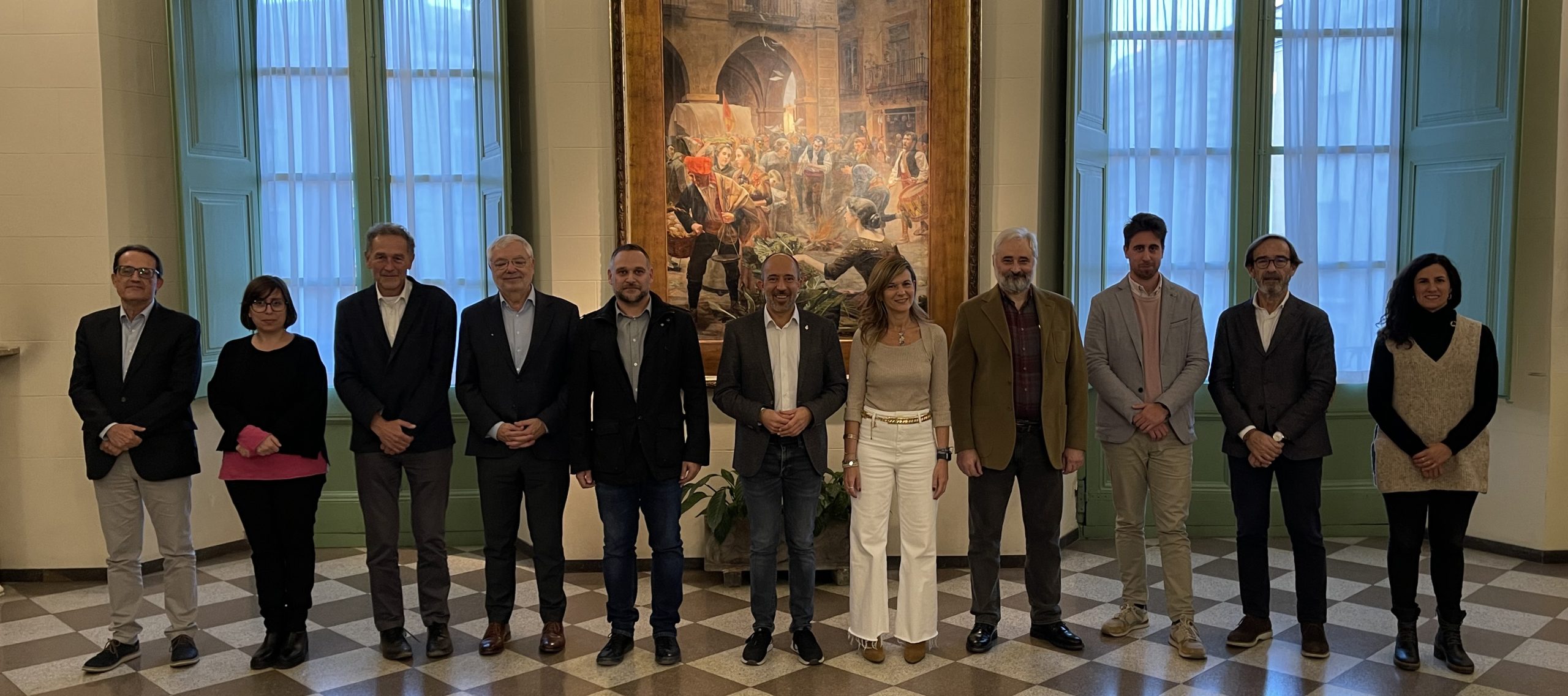Most of the entities have already been working since 2021 in the PECT BAGESS project, focused on improving the quality of life and favouring the social inclusion of people with dependency and chronic diseases.
Now, a further step is being taken with the creation of a shared agenda and the incorporation of new institutions, to create a new governance model that will enable growth as a territory, positioning it as an ecosystem of innovation in the fields of Health and Social that is recognised on a Catalan in Catalonia and abroad.
The local agents in the fields of health and social care have signed an agreement to promote a shared agenda. The aim of the signing it the improvement of policies and projects on dependency and chronicity in a region, Bages, with a high rate of ageing and over-ageing. And also to take a step forward as a territory, with the idea that the union should strengthen the role of the county in this area in relation to other institutions and position the territory as an ecosystem of innovation in the fields of health and social care, recognised at Catalan and international level.
Most of the agents involved have already been working since 2021 within the framework of the PECT BAGESS (Territorial Specialisation and Competitiveness Project – Big Data, Analysis, Management and Strategy in Health and Social), a two-year project focused on improving the quality of life and favouring the social inclusion of people with dependency and chronic diseases, and also on promoting the economic transformation and digital transition of the county’s social and healthcare sector – both public and private – to make it more competitive, sustainable, resilient and with quality employment.
Apart from AMPANS, the partners of the PECT BAGESS are the Manresa City Council, Sant Andreu Salut, Althaia Foundation, Eurecat, the Catalan Health Institute (ICS) Catalunya Central and the University Institute of Primary Care Research Jordi Gol and the University Foundation of Bages (FUB-UManresa). Also collaborating are the Regional Council of Bages, the Training Consortium Union, the Catalan Association of Associative Based Organisations and the ICT Social Health Foundation.
Among the projects that the PECT BAGESS has allowed to start up, the Observatory of Dependency and Chronicity (Sant Andreu Salut) stands out, a space to generate proposals and solutions in the Health and Social fields of the region, with the participation of citizens, institutions, the academic world and companies. Also the digital applications VinculAPP that we are developing from AMPANS, which puts technology in the hands of the dependent person or those in their most direct circle of caregivers to facilitate their daily lives, and ‘ Crono360’ (Althaia and Eurecat), which monitors chronic patients and uses AI-based technology to make personalised recommendations in the field of medical care to promote healthy lifestyle habits linked to rest, physical exercise and diet.
After the experience of the PECT BAGESS, a further step is now being taken with the creation of a shared agenda and the incorporation of new agents, with the aim of creating a new governance model that will allow us to gain weight as a territory. The agents that have been added are: the UPC, the Manresa Chamber of Commerce, the Territory, Sustainability and Infrastructures Committee of Bages and the Regional Council of Bages.
The shared agendas, promoted by the strategy for the smart specialisation of Catalonia (RIS3CAT 2030) of the Government of Catalonia, are articulated through participatory governance models, which generate transformative collective actions, with the aim of tackling shared territorial challenges and the problems and opportunities that arise from them. In the specific case of the shared agenda of Manresa – Bages, the aim is to respond to the challenges of the territory of dependence and vulnerability through innovation, research, entrepreneurship, training and technological development to contribute to sustainability, improve the quality of life of people, provide solutions and generate activity that brings prosperity to the region.


